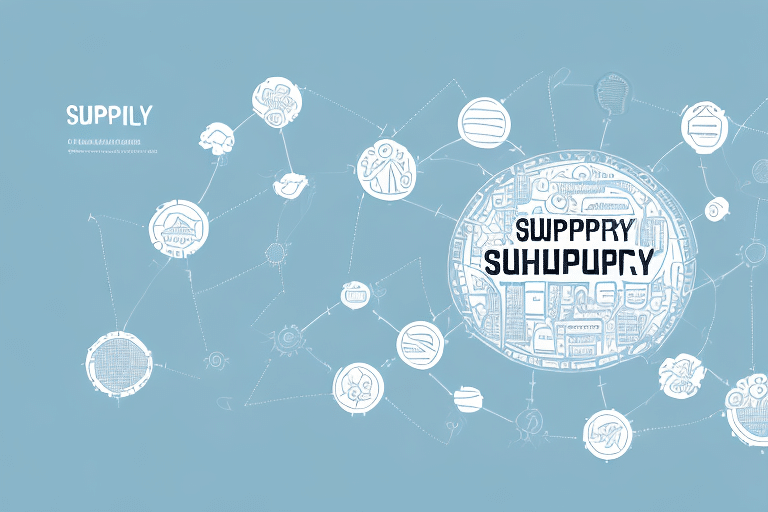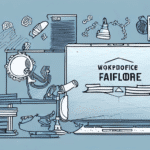Breaking Barriers: Overcoming Gender Biases in the Supply Chain Industry
The supply chain and logistics industry has long been male-dominated, presenting unique challenges for women aspiring to advance in this field. Gender biases can manifest through missed opportunities, diminished respect, or reduced authority. Despite these obstacles, women possess the same potential for success as their male counterparts. Confidence and perseverance are crucial, as hard work and dedication often speak louder than preconceived notions.
Strategies to Combat Gender Bias
- Seek Mentorship and Allies: Building relationships with mentors and allies can provide support and advocacy. Mentors offer guidance, while allies can help navigate industry politics and power dynamics.
- Professional Development: Engage in continuous learning through industry conferences, training programs, and professional organizations. This not only enhances skills but also increases visibility within the industry.
- Active Networking: Attend networking events and join relevant groups to expand your professional circle and uncover new opportunities.
Finding Your Niche: Exploring Career Paths within the Fulfillment Supply Chain
The fulfillment supply chain is a broad field with diverse roles, each offering unique opportunities. Whether it's logistics, transportation, inventory management, or procurement, understanding where your interests and strengths lie is essential for career advancement.
Specialization Areas
- Warehouse Management: Overseeing operations to ensure efficient and accurate order fulfillment.
- Order Fulfillment Specialist: Managing the process from order receipt to delivery, ensuring customer satisfaction.
- Procurement: Handling the acquisition of goods and services critical to the supply chain.
With the rise of e-commerce, roles that ensure timely and accurate order fulfillment are increasingly in demand. Specializing in this area can make you a valuable asset to companies focused on customer satisfaction and operational efficiency.
Balancing Parenthood and a Career in Supply Chain: Insights from Successful Women
Balancing the responsibilities of parenthood with a demanding career in the supply chain industry is challenging, yet achievable. Many women have successfully navigated this balance by implementing strategic approaches and leveraging supportive resources.
Effective Strategies
- Prioritize and Delegate: Focus on essential tasks and delegate non-critical responsibilities to maintain productivity without overextending.
- Set Boundaries: Clearly define work and personal time to ensure both roles receive adequate attention.
- Leverage Technology: Utilize tools and software to streamline tasks and improve time management.
Supportive Employers
Seeking employers that offer flexible work arrangements, such as remote work or flexible hours, can significantly aid in balancing career and family life. Companies that prioritize work-life balance tend to have more supportive environments for working parents.
Networking and Mentorship: Building Connections for Career Advancement
Networking and mentorship are pivotal for career growth in the supply chain industry. Building a robust professional network and finding mentors can open doors to new opportunities and provide valuable guidance.
Effective Networking Techniques
- Attend Industry Events: Participate in conferences, seminars, and workshops to meet industry professionals and stay updated on trends.
- Join Professional Organizations: Engage with groups such as the Council of Supply Chain Management Professionals (CSCMP) to expand your network.
- Engage Online: Utilize platforms like LinkedIn to connect with peers and industry leaders.
Benefits of Mentorship
A mentor can provide personalized advice, share industry insights, and help navigate career challenges. According to a Forbes article, mentorship significantly increases the likelihood of career advancement and job satisfaction.
Negotiating for Success: Tips for Salary Negotiations in Supply Chain Roles
Negotiating salary is a critical step in advancing your career and ensuring fair compensation. Women in the supply chain industry must approach negotiations strategically to bridge the gender pay gap.
Preparation is Key
- Research Salary Standards: Utilize resources like the Payscale Salary Survey to understand the average compensation for your role and experience.
- Build Your Case: Compile evidence of your achievements, skills, and contributions to justify a higher salary.
- Practice Negotiation: Rehearse your negotiation dialogue to build confidence and clarity.
Beyond Salary
Consider negotiating for additional benefits such as flexible work hours, professional development opportunities, and enhanced healthcare benefits. These can add significant value to your overall compensation package.
Overcoming Imposter Syndrome: Building Confidence in the Supply Chain Field
Many women in male-dominated industries like supply chain experience imposter syndrome—the doubt about their abilities despite evidence of competence. Overcoming this requires building confidence and assertiveness.
Building Confidence
- Celebrate Achievements: Keep a record of your successes to remind yourself of your capabilities.
- Seek Feedback: Regularly ask for constructive feedback to identify areas of strength and improvement.
- Continuous Learning: Engage in ongoing education and skill development to enhance your expertise.
Leveraging Support Systems
Connecting with supportive colleagues, mentors, and professional networks can provide encouragement and validation, helping to mitigate feelings of inadequacy.
Embracing Diversity: The Importance of Inclusion in the Supply Chain Industry
Diversity and inclusion are essential for fostering innovation and improving business performance. Women and individuals from diverse backgrounds bring unique perspectives that enhance problem-solving and drive success in the supply chain sector.
Benefits of a Diverse Workforce
- Enhanced Innovation: Diverse teams are more creative and better at developing innovative solutions.
- Improved Performance: According to a McKinsey & Company study, companies in the top quartile for gender diversity are 15% more likely to outperform their peers financially.
- Better Decision Making: Diverse perspectives lead to more thorough analysis and better-informed decisions.
Promoting Inclusion
Organizations must actively foster inclusive environments by implementing policies that support diversity, providing diversity training, and encouraging equitable opportunities for all employees.
By embracing these strategies, women in the fulfillment supply chain industry can not only advance their own careers but also contribute to a more dynamic, innovative, and successful industry as a whole.
Further Reading
- The Importance of Mentorship in the Workplace - Forbes
- Payscale Salary Survey
- Diversity Wins: How Inclusion Matters - McKinsey & Company






















